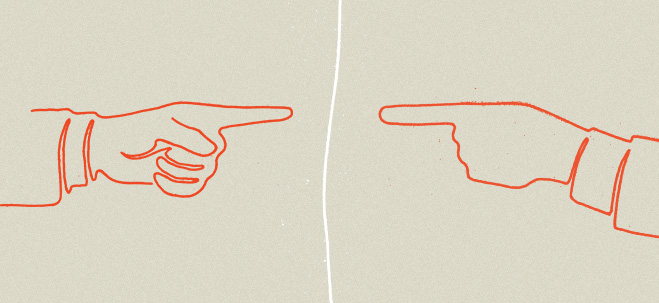
Mutual Accountability: How Leaders Succeed at Innovating
Take on a great challenge and we open ourselves up to great missteps and failures. If we’re going to succeed at doing what we haven’t done before, we need people to be accountable for delivering on their commitments. But all too often when things don’t work in organizations, we look for someone to blame.
Is this really where we want to focus our attention? Is this how we want to spend our valuable time and energy?
Blamed and Busted
Failures actually offer us extraordinary opportunities for individual and organizational learning. We reach, we fall, we learn. We reach again, we try something else, we fall, and we learn more. When we can collaborate with others, we learn more, and eventually succeed at innovating and achieving new levels of performance.
Yet all too often I observe leaders who have stepped up to a large organizational challenge getting blamed or “busted” when performance wanes or commitments are not met.
What naturally follows such scapegoating?
Superhuman efforts to stay clear of blame or, at the very least, to maintain plausible deniability. This response, motivated by self-preservation, has us diverge from the intent of our original commitments as leaders. An even greater loss plays out in this routine: missed opportunities for problem-solving, learning, and collaboration. Innovation dies in blame-and-bust environments.
It’s difficult to envision any productive outcomes being salvaged from this blame-and-bust accountability dance.
I propose another way to define accountability—a way that gives leaders the ability to provide support, initiate problem-solving, and facilitate collaboration that inspires the highest performance possible from individuals and groups.
Commitments & Role Responsibility
We make commitments to perform according to our role responsibilities. We need to be able to hold individuals and groups accountable for getting things done reliably, efficiently, effectively and accurately. Without performance, there will be no profit. Without profits, organizations cease to exist.
Discussions about “who we are going to hold accountable” and “who is accountable” are critical to individual and organizational well-being. If we expand these conversations to cover what accountability means after a breakdown in performance, we can resist the temptation to focus on catching someone doing something ‘wrong’ after the fact.
Accountability is really about taking care of everyone’s vested interests. Accountability is our understanding that you and I are going to make commitments to others from our respective role responsibilities based on the commitments that exist between us. In this way, you and I are vested in each other’s success at delivering on our commitments to one another. We operate in a network of inter-dependent, inter-related commitments.
As an effective leader, you can encourage what I call mutual accountability throughout your organization—an approach to accountability that has everyone sharing in success and helping each other achieve their goals.
If I make a commitment to you to deliver “X” by “Y”, you’re likely to make commitments to others based on my commitment to you. In this way, you’re vested in my ability to fulfill my commitment. In this way, we’re mutually accountable. I’m accountable to not only deliver, but also to declare proactively if my ability to deliver is compromised by any number of legitimate and common occurrences.
We know that circumstances are dynamic in business. Priorities often shift, knowledge changes, and resources become scarce. It is not a matter of ‘if’ our ability to deliver on specific commitments will be jeopardized. It’s a question of when. When we’re operating as mutually accountable, we have an implied obligation to convene conversations to discuss the status of our commitments. If necessary, we can ask for help, shift other priorities in a proactive manner, or renegotiate our promises to each other.
Given that we actually make commitments to one another every day, we can choose to operate within a context of ‘blame and bust’ or ‘mutual accountability’.
What is your choice?